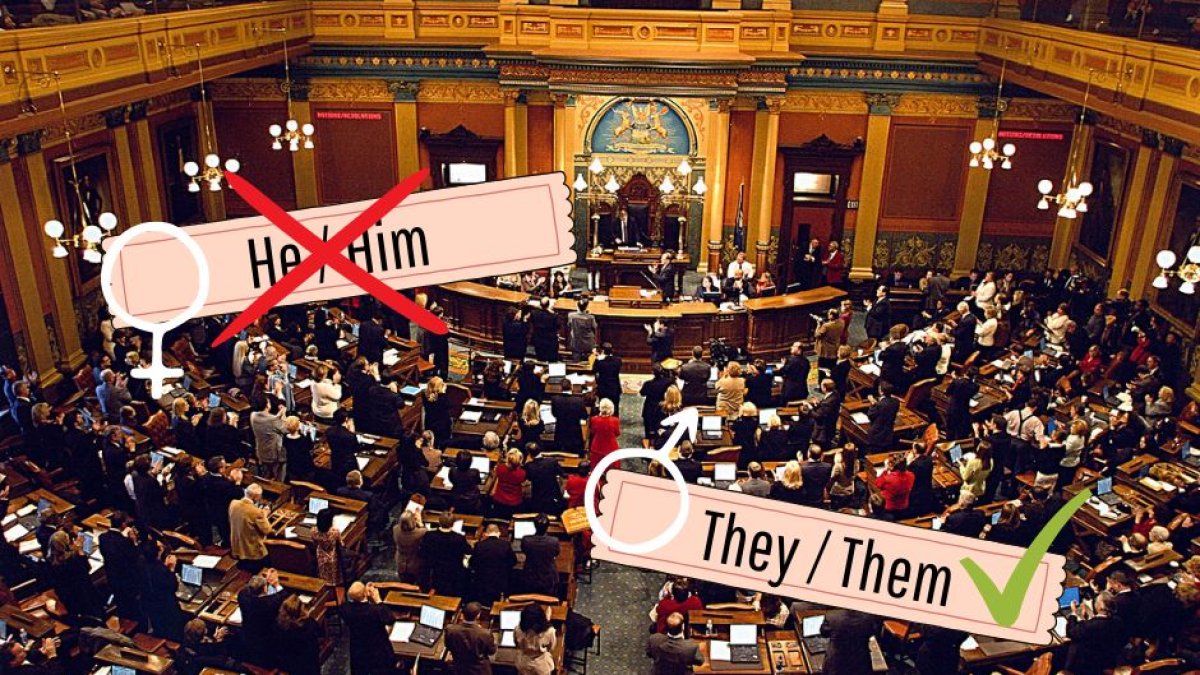Five years in jail and a $10,000 fine for not using preferred pronouns in Michigan
A bill with these penalties was approved by the state House of Representatives and now will face evaluation in the Senate.

( Wikimedia Commons )
The Michigan House of Representatives on Friday passed a bill forcing the use of preferred pronouns. That is, anyone who fails to address another person with the pronouns the latter has chosen is subject to a fine of up to $10,000.
Preferred pronouns are those that non-binary or trans people have commonly chosen to refer to themselves. For example, some social media users alert in their profiles that they prefer to be referred to as he/him.
The bill is called HB4474. The House of Representatives has a Democratic majority that helped pass it. The same situation could repeat itself in the state Senate, which has also had a Democratic majority since the 2022 midterms. Michigan's Democratic Governor Gretchen Whitmer is also expected to approve the bill if it makes it to her office.
In more detail, HB4474 provides for financial penalties of up to $10,000, in addition to prison terms ranging up to five years for the alleged verbal threat that the legislators consider when referring to someone by a pronoun other than the one they prefer. The bill seeks to amend the Ethnic Intimidation Act of 1988, which stipulates a two-year prison sentence and $5,000 fines for hate crimes, but did not provide for these new offenses.
A project by the Democrats
The bill was introduced in late April by Democratic Representatives Noah Arbit, Kristian Grant and Ranjeev Puri. "This legislation will provide better tools to respond, pursue justice and accountability, and create opportunities to reduce hate violence in Michigan," noted Rep. Arbit during the floor vote.
The proposed law considers sexual orientation and gender identity or expression as categories protected from any intimidation. This is defined as "deliberate conduct of repeated or continued harassment of another person that would cause a reasonable person to feel terrified, frightened, or threatened, and that actually causes the victim to feel terrified, frightened, or threatened."
Laws similar to this one have already been approved in California and have been applied in some high-profile cases, such as that of the Shake Shack restaurant company, which paid a $20,000 settlement to a former employee who was referred to by the pronouns corresponding to the employee’s birth gender rather than preferred gender.

























